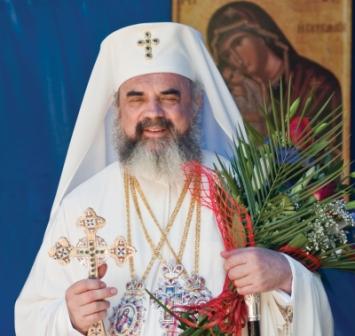Why do we fast
We love God more than the gifts He gives us
Patriarch Daniel of Romania

“We fast in order to pray more and better, we fast to repent more intensely, more sincerely and more humbly, we fast to have the Holy Communion more often. We fast not because we follow some strict rules, imposed by the Church, but because we love God more than the gifts He gives us. We love Him, the Giver, more than our material food, than our convenience, or than our success. So, fasting is a sign of our love for God.”
His Beatitude Patriarch Daniel of Romania
This quotation is from a homily delivered by His Beatitude, Patriarch Daniel, after one of the Great Canon Services[1], Clean week, 2011.
I know very little about Patriarch Daniel, and his words here are completely pastoral, and patristic.
It is always good to hear or read the words of contemporary Orthodox fathers, to see that the true faith is still being proclaimed.
The first part of His Beatitude’s comments are kind of “standard” – they are true, and should be reasons why all of us fast, but we hear this stuff all the time, and a lot of people still do not fast or have very legalistic views about fasting.
The second part of His Beatitude’s word’s are the most important. He points out that fasting is not about rules, but about love:
“We fast not because we follow some strict rules, imposed by the Church, but because we love God more than the gifts He gives us. We love Him, the Giver, more than our material food, than our convenience, or than our success. So, fasting is a sign of our love for God”
This is the proper perspective to have about fasting! It is a fact that the one who loves wishes to show His beloved that he loves, and “give gifts”. In our case, we cannot give God anything, since He owns the cattle on a thousand hills[2], but He has asked us for only one thing:
My son, give me thine heart, and let thine eyes observe my ways.[3]
We “give our heart” by showing our love – not because of a law, which if broken, we fear will cause us to be punished, but because of love. To love is to also implicitly promise that we have ordered our priorities and the things we value and do not value in accordance with our beloved.
If every Orthodox Christian understood Patriarch Daniels’ Orthodox words in an Orthodox way, everybody would fast – from food and from sin – because everyone would desire above all things to show their love for God, in gratitude for His gifts to us.
Priest Seraphim Holland 2011. St Nicholas Russian Orthodox Church, McKinney, Texas
This article is at:
New Journal entries, homilies, etc. are on our BLOG: http://www.orthodox.net/redeemingthetime
Journal Archive: http://www.orthodox.net/journal
Blog posts & local parish news are posted to our email list. Go to here: http://groups.google.com/group/saint-nicholas-orthodox-church to join.
Redeeming the Time BLOG: http://www.orthodox.net/redeemingthetime
Use this for any edifying reason, but please give credit, and include the URL of the article. This content belongs to the author. We would love to hear from you with comments! (seraphim@orthodox.net)
[1] Source: http://www.basilica.ro/en/patriarchate-news/the_patriarch_of_romania_celebrated_the_service_of_the_great_canon_at_the_patriarchal_cathedral_2081.html
[2] There is a discrepancy in the Hebrew Psalter vs. the Septuagint. This phrase is well known among English speaking peoples, from the following verse (Hebrew numbering) “For every beast of the forest is mine, and the cattle upon a thousand hills.” (Psalm 50:10 KJV) This corresponds to the Septuagint verse: “For all the wild beasts of the thicket are mine, the cattle on the mountains, and oxen. (Psalm 49:10, Brenton). The meaning is basically the same, and although the Septuagint is more accurate. I have said this phrase according to the Hebrew Psalter so many times that it is like part of my DNA.
[3] Proverbs 23:26 KJV